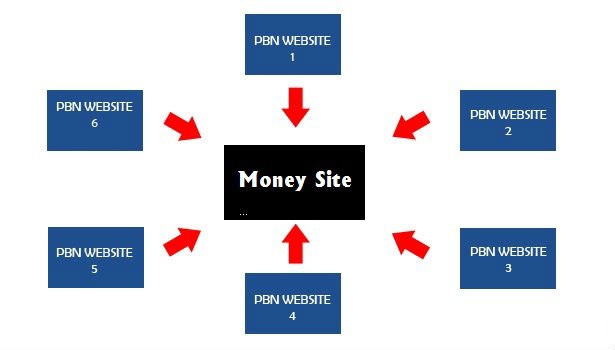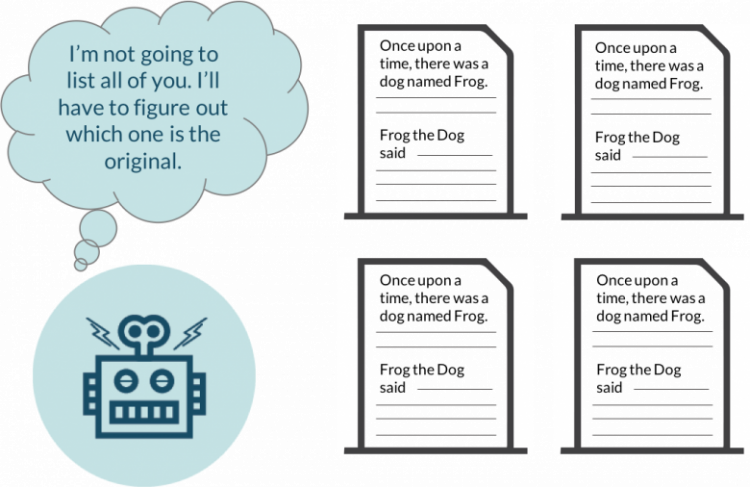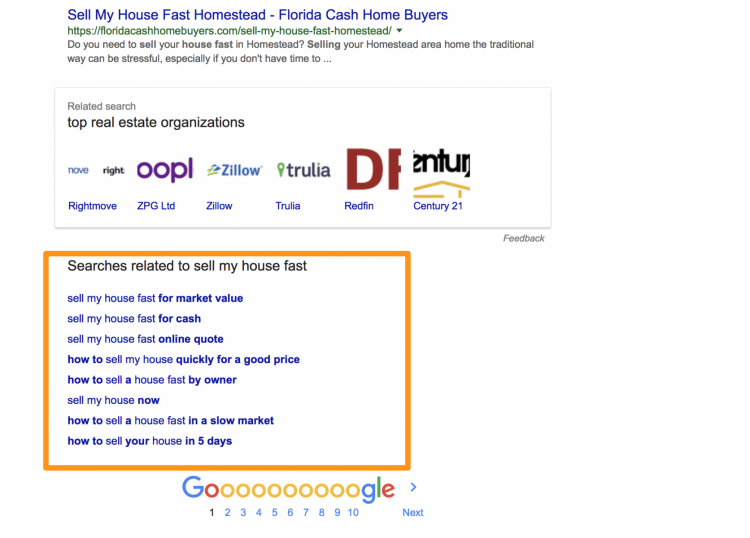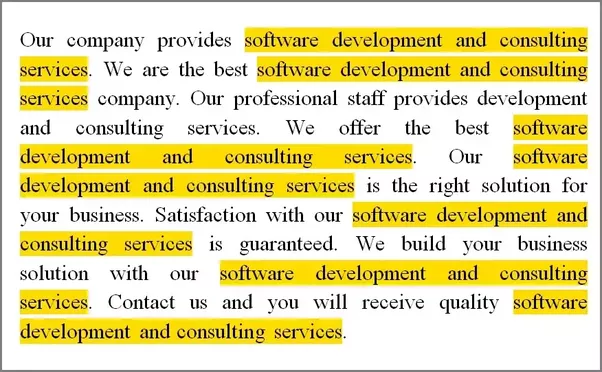
You’re trying to climb through the rankings…
You’re up against market competition and you’re up against the amount of time on your calendar. Still, you’re doing what you can. In the evenings and on the weekends, you’re building backlinks, publishing new content, and creating consistent social signals.
Thing is, you might be sabotaging your rankings…
Without even knowing it.
So, let’s change that.
If you’re hurting your own rankings unintentionally, you should at least know about it. Plus, I’ll teach you how to strengthen your rankings the un-risky way.
But first, the dark side…
What is Black Hat SEO?

Award-winning HubSpot blog defines black hat SEO as…
“A practice against search engine guidelines, used to get a site ranking higher in search results. These unethical tactics don’t solve for the searcher and often end in a penalty from search engines. Black hat techniques include keyword stuffing, cloaking, and using private link networks.”
In other words, black hat SEO is trying to climb through the rankings using tactics that Google has explicitly banned.
Unfortunately, these black hat SEO tactics are as tempting as they are popular.
Because they work… until, of course, Papa Google finds out.
Thennnnn the picture gets a bit more discouraging. More on that later. First, let’s take a minute to chat about some of the most common black hat SEO practices that you might not even know are black hat.
A Few Examples of Black Hat SEO…
1. PBNs (Private Blog Networks)
Look – building backlinks are difficult. It’s time-consuming, expensive, and soul-crushing.
We all know it.
Which is exactly why PBNs are so darn tempting…
These services promise to build backlinks to your website at a remarkably low cost and get your website ranking in no time. They won’t say much about how they’re going to build those backlinks, but the promise of seeing your website on the first page of Google’s results is enough to persuade most of us to enter our credit card information.
Since they won’t tell you how they build backlinks to your website, though, I will…
In a nutshell, they purchase hundreds or thousands of expired/unused domains with a bit of SEO juice build from the previous owners. Then, they go to all of these domains and plug a backlink to your website on each.
After a bit of time, your website starts to rank and you’re thinking to yourself, “Wow! These guys are awesome!”

Here’s the problem: PBNs cheat the system. Google explicitly says that using a PBN won’t only get the PBN company in trouble, it’ll get your website penalized as well.
It’ll all be good and fine until Google finds out. And they almost always find out.
Once they do, your website will take a massive dive in the rankings (or get banned from indexing altogether) – and recovering from that loss will be harder than trying to get a new website ranking (because you’ve lost Google’s trust).
2. Content Scraping
Content scraping might not be what you think…
Here’s a definition from Varvy:
“Scraping content is taking content from other places on the web and publishing it on your own site. There are many websites that only contain pieces of other websites or stolen content. Many sites will take articles from other websites and publish them as if they were their own, or will copy entire websites.”
In high school and college, this was called plagiarism.
Copying and pasting content to your own website as if it’s your own is a big no-no in Google’s eyes. When your website has the same exact content on a page as another website, Google will only rank one of those pages, not both. This is called duplicate content.
Here’s Moz’s graphical representation of this…

Plus, if you consistently copy and publish content from other websites, up goes your spam score and down go your rankings. This is why, for Carrot members, we recommend you localize and change 25% of the blog post content that we provide you with. That way, you can avoid any duplicate content penalties that Google dishes out.
Now, though, you probably have another question…
What if someone does this to your website?
Will that hurt your own rankings?
Well, depending on how aggressive they are, it could hurt your rankings. Which is exactly why Google allows you to report spam websites over here.
3. Keyword Stuffing
You probably know that targeting the right keywords on your website is critical to ranking in Google. And that’s 100% right – you shouldn’t stop doing that.
But you should aim for about 2% to 5% exact keyword-phrase density (a 1,000-word article would have 20 to 50 exact matches). Not much lower and not much higher.
You can also include some LSI keywords in your content to fill in the gaps…

The reason you want to avoid going much higher than 5% with your exact keyword-phrase density is because doing so flags Google that you’re… well, basically trying too hard.
And Google equates stuffing lots of exact-match keywords in your content to providing less value for your audience and trying to get some cheap rankings.
Naturally, Google doesn’t like that and will do the opposite of ranking you well.
Here’s the canonical truth from Papa Google…
“‘Keyword stuffing’ refers to the practice of loading a webpage with keywords or numbers in an attempt to manipulate a site’s ranking in Google search results. Often these keywords appear in a list or group, or out of context (not as natural prose). Filling pages with keywords or numbers results in a negative user experience, and can harm your site’s ranking. Focus on creating useful, information-rich content that uses keywords appropriately and in context.”
And here’s an exaggerated example of keyword stuffing in action.

Those are just a few of the common examples of black hat SEO practices – there are more. But you get the point. Anytimeyour try to manipulate your rankings in a way that Google explicitly forbids, you put your website in danger of getting penalized…
What, though, are the penalties?
That’s what we’re talking about next…
What are the risks?
1. Your SEO Authority Could Spontaneously Plummet

The penalty to your website for using black hat SEO strategies varies depending on how many times you’ve been penalized and what you’re being penalized for.
Naturally, the more serious the offense, the more serious the punishment.
The best case scenario, though, is that your rankings spontaneously plummet.
This usually means that you got found out and Google is taking actions to encourage you to stop.
2. Google Could Ban your Website from Indexing Altogether

This is the worst case scenario, but it happens – especially for repeat offenders.
The more that you use black hat SEO practices, the more that you get caught, the worst punishment you’re going to receive. Eventually, your website and domain could get banned from Google’s indexing altogether.
It won’t happen immediately, of course… but why take the risk?
Especially since there’s a better way…
Why you Should Focus on White Hat SEO Instead…

Jokes aside, increasing your rankings with a legit SEO strategy (the opposite of black hat SEO) has absolutely no risk. Sure – it might take longer (6 to 12 months often) but you’re in this business for the long-haul, right? You’re not just here for a month or two, you’re here to stay.
So take the time to invest in your website and your rankings the right way.
To help, I discuss 4 time-saving, white-hat ways to build consistent backlinks to your website and increase your rankings the right way in this article…
And while you’re working to increase organic traffic and leads to your website the white-hat way, consider implementing a paid advertising strategy like we discuss in this article to fill your short-term pipeline.
Finally, if you’re not a Carrot member, then consider signing up to start increasing your rankings today – we’ll provide you with a keyword-optimized website, SEO blog content (if you’re a Carrot Member and subscribe to the Content Tools add-on), and a whole slew of search engine optimization tools you won’t find anywhere else.
And hit us with questions in the comments if you have any! I know this can be kind of confusing if it’s the first you’re hearing of it, so don’t be shy. :-)
